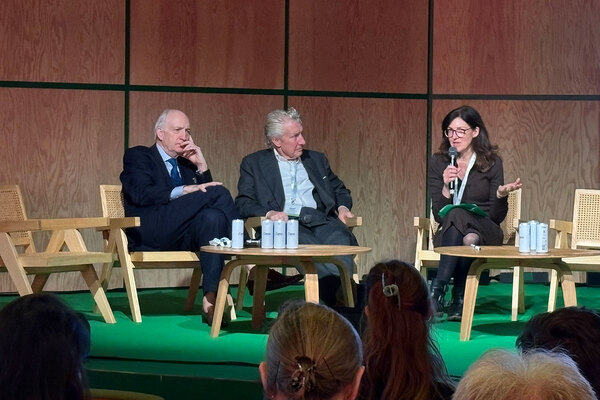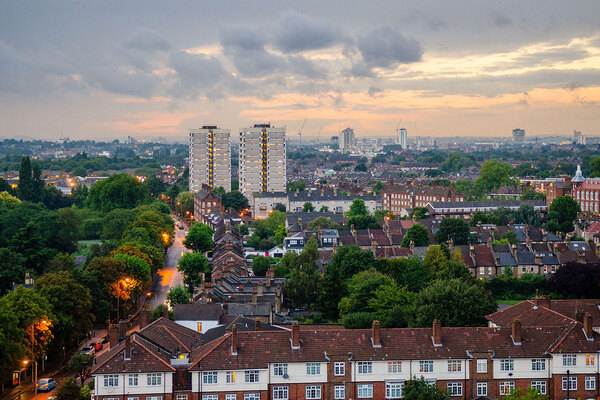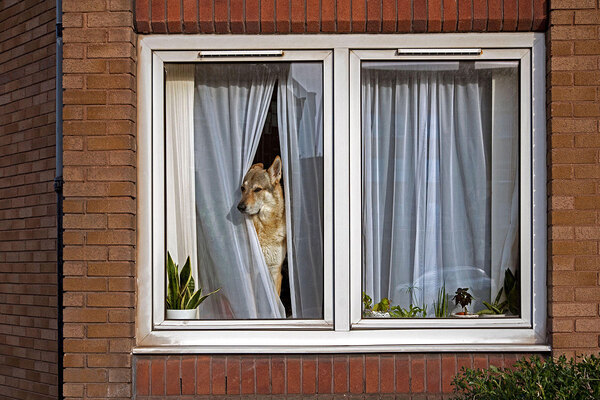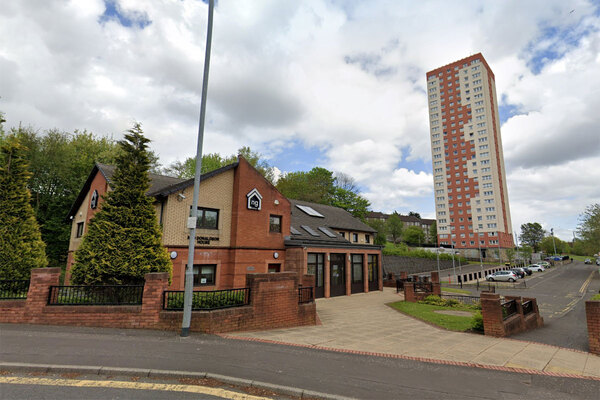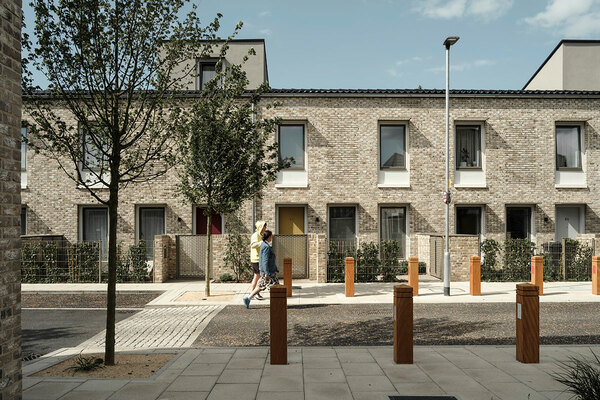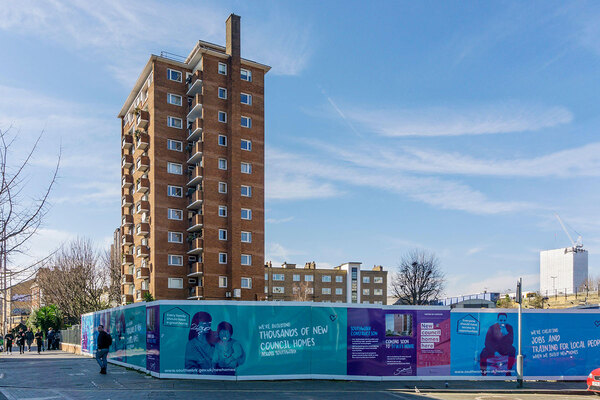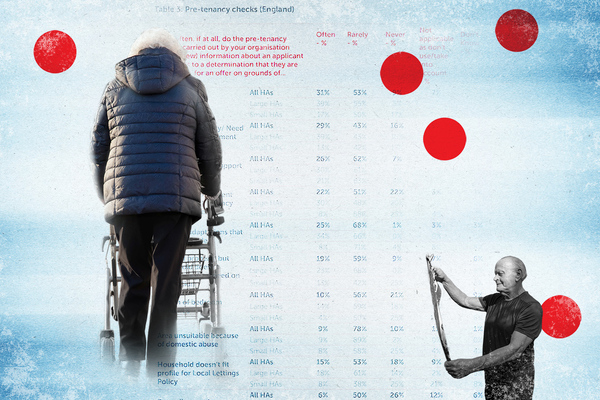You are viewing 1 of your 1 free articles
Helping Afghans find a home away from home
Thousands of evacuated Afghans need a safe, permanent place to live in the UK. Lucie Heath considers how the housing sector can help families fleeing the Taliban
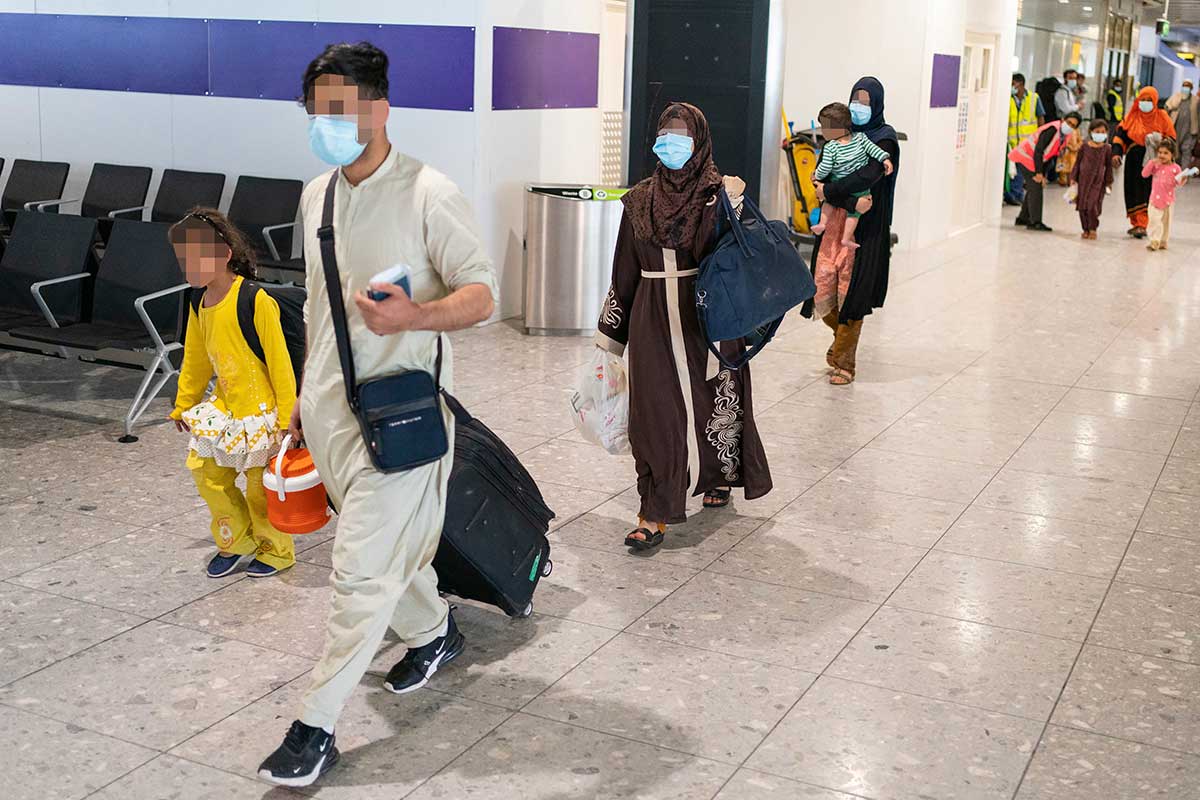
In August, the world looked on in horror at images of desperate Afghans clinging to military planes taking off from Kabul’s airport after the Taliban seized control of the country’s capital.
The sudden fall of Afghanistan led to the British government evacuating more than 15,000 people from the country in the weeks that followed, including British citizens and those who worked alongside the British military and government over the past 20 years.
But where are the people who have been evacuated going to live? Inside Housing spoke to councils, housing associations and charities to understand what needs to be done.
First, it is useful to understand the routes through which Afghans can relocate to the UK. One of the two main ones is the government’s Afghan Relocations and Assistance Policy (ARAP) scheme. It has been running since April and offers indefinite leave to remain to families who worked with the UK in Afghanistan.
“Most housing associations don’t have any vacancies – the whole point is to let them to nominations from their local authority and fill them up, and there’s plenty of people wanting affordable housing or social housing”
The second is the Afghan citizens’ resettlement scheme, which the government announced in August in response to the unexpectedly rapid fall of the country. While the scheme hasn’t officially opened yet, the government has said it will aim to resettle 5,000 Afghans in its first year and 20,000 in the long term. Priority will be given to “vulnerable” groups, such as women and girls, and “those who have stood up for values such as democracy, women’s rights and freedom of speech”.
Finally, Afghans can attempt to travel to the UK of their own accord to claim asylum and these claims will be processed as part of the standard UK asylum system.
Long-term accommodation for families
Of the 15,000 people who were evacuated from Afghanistan in the final weeks of August, the government has said roughly 5,000 are British citizens and 8,000 are eligible for the ARAP scheme. Andy Hewett, head of advocacy at the Refugee Council, says the British government also evacuated “priority groups” and that there is some “confusion” over their entitlements, but that it is expected they will become part of the resettlement scheme. The remaining people will be the first referred to the resettlement scheme once it officially opens, the government has said.
Everyone who arrived in the UK had to spend 10 days in coronavirus quarantine hotels, as Afghanistan is on the government’s red list for travel. Those entering the country via the ARAP scheme should then be moved into accommodation sourced by councils that have agreements with the Home Office, Mr Hewett says. However, due to the sudden influx of refugees over a short period of time, people are being moved into “bridging hotels”.
“There have been times in the past when housing associations have responded quickly”
“Under the sort of traditional refugee resettlement schemes, the UK would ordinarily bring about 5,000 people over the course of a year, and obviously we’ve exceeded that in the course of a few weeks,” Mr Hewett says.
“The immediate need was to evacuate people and bring them to safety, but it is understandable that local authorities have not been able to source the appropriate accommodation in such a short time frame.”
At the start of this month, The Times reported that roughly half of councils in England have agreed to offer long-term accommodation to families fleeing Afghanistan and permanent homes have been found for about half of the 8,000 families coming in via the ARAP scheme. The Home Office did not respond to Inside Housing’s request to confirm these figures.
While the effort to find this accommodation so quickly should be applauded, that still leaves 4,000 ARAP families and thousands more who will become part of the resettlement scheme, many of whom will be extremely traumatised, stuck in hotels.
Big properties required
Alan Waters is leader of Norwich City Council, one of the local authorities that has agreed to house Afghan families. The majority of councils, including Norwich, will look to the private rented sector. This is partly due to the speed at which homes need to be found, but also because of the shortage of social housing.
Mr Waters says one of the biggest challenges the council faces is finding big enough houses, as many of those fleeing the Taliban are part of large families that require four or five-bedroom homes.
Councils can currently opt out of housing refugees. Mr Waters says he would like the government to reconsider this, to boost the number of homes available.
It is hoped that more local authorities will be encouraged to sign up now that the government has provided more certainty around the long-term funding for councils that support families through both schemes, after an initial period of uncertainty.
On 13 September, the government announced a funding package according to which councils will be given £20,520 per individual whom they support through either scheme.
After making this announcement, Priti Patel, the home secretary, and Robert Jenrick, who was housing secretary at the time, but who has since been replaced by Michael Gove, sent a joint letter to all councils in the UK asking them to “step up”.
The funding deal is similar to what councils received under a former resettlement scheme for Syrian refugees, with the money now spread over three years instead of five.
A £17m Afghan Housing Costs Fund has also been announced, which will run for three years and which councils can use to top up the rent shortfall for families who are affected by the benefit cap.
Funding to bridge the gap between the value of the benefit cap and the cost of renting a large property was a key demand from local authorities, especially as many of the people arriving from Afghanistan are part of large families. The benefit cap for families is £1,916.67 per month for those living in London and £1,666.67 per month for those in the rest of the UK. In many parts of the country, this means there will be a significant difference between what Afghan families are receiving in benefits and the cost of renting four or five-bedroom homes, which this funding will need to fill.
Tom Copley, deputy mayor for housing in London, says he is “pleased” that the government has listened to demands that it provide a “multi-year package of funding to help councils”, especially “amid a backdrop of benefit cap restrictions and London’s housing market”.
“If we had the money, we could conceivably buy a whole load of houses on house builders’ new estates”
He says ministers must ensure “the funding is sufficient for the duration of the resettlement programmes”, adding that councils “still need certainty of exactly how and when they can step in to remove the hardship created by the benefit cap”.
The challenges of finding homes within the private rented sector begs the question whether social landlords could play a larger role in the housing effort.
David Bogle, chief executive of Hightown Housing Association, says it can be difficult for housing associations to offer homes quickly. “It is very like trying to house any group. Obviously the problem is all our properties are full up. Most housing associations don’t have any vacancies – the whole point is to let them to nominations from their local authority and fill them up, and there’s plenty of people wanting affordable housing or social housing.”
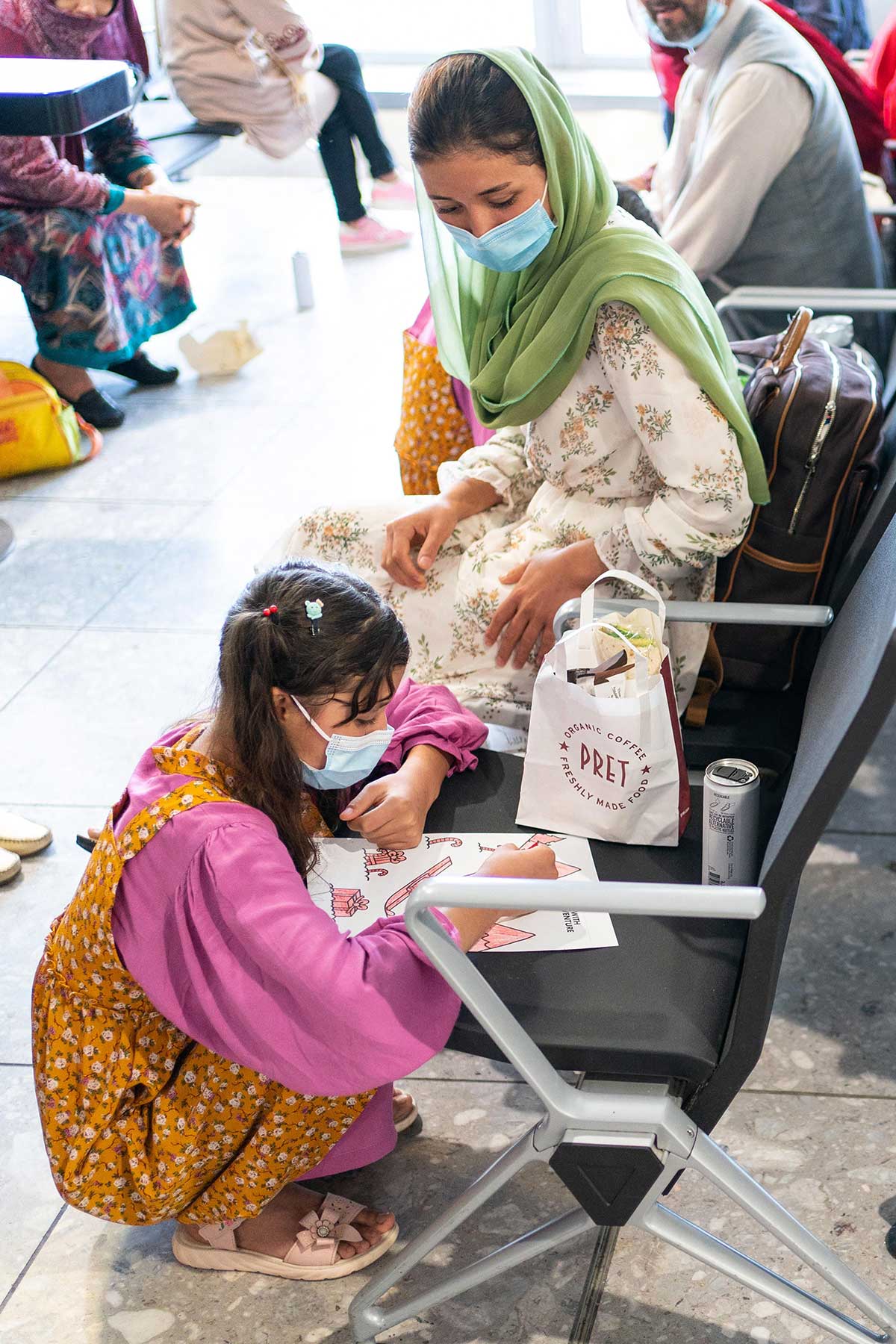
Geeta Nanda, who chairs the G15, says nine out of 10 of the social rented homes owned by group members are covered by nomination agreements with local authorities – they have to be let to people on council housing waiting lists. She says the G15 has discussed the matter with local authorities. The majority decided not to offer these social homes to Afghan families, due to the amount of time local homeless families have spent waiting for family-sized accommodation.
This does not mean housing associations don’t have a role to play. Ms Nanda says the G15’s members are going through their stock to understand what other homes they could offer to local authorities, such as market rent or intermediate rent homes.
Her own organisation, Metropolitan Thames Valley (MTVH), has pledged to provide 50 homes to Afghan families over the next year. These are a proportion of the homes that will become available for re-letting each year, over which MTVH has discretion on allocation. In recognition of the existing demand on its affordable housing, MTVH will seek to offer homes for refugee resettlement that have first been refused by households on MTVH’s internal transfer list.
There has also been talk within London of converting market sale homes into social rent homes. Tom Copley, deputy mayor for housing in London, says the Greater London Authority is keen to receive bids from housing associations looking to convert market sale properties or acquire properties to house refugees. This would be funded through the Affordable Homes Programme.
The role of housing associations
Sadiq Khan, the mayor of London, recently announced plans to extend his Right to Buy-back fund, which allows councils to repurchase homes that were sold to tenants under the Right to Buy. Mr Copley says councils will be supported to buy back the larger homes needed for many Afghan families.
Fiona Fletcher-Smith, chief executive of L&Q, says the housing association’s private rented sector team, sales team and general needs team are all looking at what stock they can provide to local authorities and are “passing addresses over as we speak”. She says 100% of their vacant social housing properties are being offered to local authorities that have agreed to house Afghan families, rather than the usual nine in 10. L&Q is also hoping to offer three or four larger properties in its Barking Riverside development.
But it is unlikely any housing association will be able to offer large numbers of properties. While even small numbers of homes are welcome, it is hard not to think of the role housing associations could play with a bit more direction and ambition from central government. As Ms Nanda points out, housing associations are “ideally placed” to provide Afghan families with the wider support they will need to adjust to life in the UK and recover from the trauma they have experienced.
According to Mr Bogle, “there have been times in the past when housing associations have responded quickly” to events, such as when they have been funded to buy market sale homes from developers in response to financial crises.
“We’re dealing with house builders all the time on Section 106 sites. If we had the money, we could conceivably buy a whole load of houses on house builders’ new estates,” he says, meaning Afghan families could be housed together in groups rather than dotted across the country.
Unless the government launches a dedicated grant programme for housing associations, it is unlikely they will be able to do more than they are doing now: combing through their stock and offering any vacant property that might be suitable.
If all housing associations agree to this, the impact could still be significant. It is vital the sector does all in its power to ensure families fleeing Afghanistan are given somewhere in the UK to call home.
Sign up to our Best of In-Depth newsletter
We have recently relaunched our weekly Long Read newsletter as Best of In-Depth. The idea is to bring you a shorter selection of the very best analysis and comment we are publishing each week.
Already have an account? Click here to manage your newsletters.
Related stories




